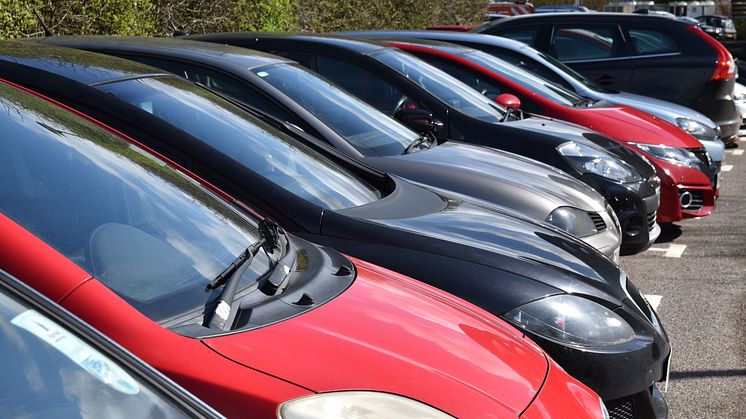
Press release -
Motorists want to see better Government regulation of private parking
The RAC is today supporting a call from motorists for the Government to introduce better regulation of the private parking sector as new figures suggest trust has hit rock-bottom.
Three-quarters of 2,194 motorists (73%) surveyed on the RAC Opinion Panel felt the sector should have to fall under government regulations rather than continuing to ‘self-police’ through membership of a trade association.
Motorists’ perceptions of private parking operators’ priorities are clear, with the the belief they are only interested in making money being the most popular view – one supported by six in 10 (62%) of motorists questioned by the RAC.
Nearly half (45%) said their enforcement policies are too heavy-handed and more than a quarter (28%) think there is no justification whatsoever for the way private parking operators enforce their rules. Only a tiny 4% think their charges are fair and their conduct reasonable, though a fifth (21%) accept that private parking operators are necessary to stop a parking free-for-all.
Opinions of private parking penalty charge notices could not be clearer with three-quarters of motorists (73%) saying they understand that such charges may be necessary, but generally they are excessive or disproportionate for the level of parking contravention. Of the remainder, a fifth (21%) claim that any penalty charges are wholly unacceptable and only 6% would go so far as to say the amounts are reasonable.
In March 2015 the Department for Communities and Local Government launched a discussion paper looking at unfair parking practices; however their conclusions are still yet to be published.
Asked about what they would like to see emerge from the consultation, around nine in 10 motorists cited penalty charge capping (91% in favour); guidelines for penalty charge amounts (88% in favour) and action to prevent aggressive enforcement (90% in favour).
Nearly one in five (16%) of drivers surveyed said they had received a parking charge notice from a private parking company, but while 38% (of the 16%) decided to pay straightaway a determined 62% decided to appeal against the charge. Of those who appealed, 60% said they were successful in getting the notice reduced or cancelled. And of those remaining, half lost their battles and paid up while the indignant other half said they still refused to pay.
RAC spokesman Simon Williams said: “Few issues incense motorists more than the practices of some private parking companies. There cannot be many other sectors that are trusted so little, yet are so unaccountable.
“There remains a proportion of the parking sector which operates outside of a trade association, which is something the Government should consider outlawing altogether. The research findings show that when a motorist does appeal against a penalty charge, the charge is set aside on the majority of occasions. This suggests that the appeal processes operated by the trade associations are fair, but this also lends weight to the accusations of operators being heavy-handed in the first place.
“The overwhelming consensus from motorists is that they have little or no faith in private parking operators and therefore believe that further government regulation is needed to protect motorists from questionable practices. Insisting every private parking operator is a member of an accredited trade association would be a good start.
“The Government’s response to the discussion paper in 2015 is long overdue, and we would hope to see at least some minimum standards applied to the sector, even for those that are signed up to an accredited trade association.
“Due to the strength of feeling from motorists on this issue the RAC is now calling on the Government to intervene with some concrete proposals that improve motorists experiences of the private parking sector.”
For advice on how to appeal and avoid private parking penalty charge notices visit the Drive section of RAC website.
Ends
Topics
Categories
About the RAC
With more than eight million members, the RAC is one of the UK's most progressive motoring organisations, providing services for both private and business motorists. Whether it's roadside assistance, insurance, buying a used car, vehicle inspections and checks, legal services or up-to-the-minute traffic and travel information – the RAC offers a solution for all motoring needs. The RAC is committed to making motoring easier, safer, more affordable and more enjoyable for drivers and road users.
The RAC is the motorist’s champion and campaigns to support the interests of its members and UK motorists at a national level, including advancing levels of road safety, supporting the needs of young drivers and voicing concerns about the increasing cost of motoring. The RAC’s annual Report on Motoring – first published in 1989 – provides a clear insight into the concerns and issues facing today’s motorists.
For the very latest news on UK fuel prices, check RAC Fuel Watch or follow #racfuelwatch on Twitter. This is a comprehensive guide to the latest UK unleaded petrol and diesel prices – both at the wholesale level and at the pump. RAC Fuel Watch analyses how prices changed through the previous month and compares the most recent prices with those from three, six and 12 months before.
Key facts:
- RAC patrols fix four out of five vehicles at the roadside and on average within 30 minutes
- RAC vans carry more than 500 parts and tools to get members’ vehicles going again
- 92% of members would recommend RAC Rescue to their friends and family

